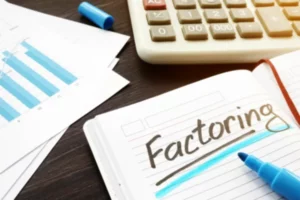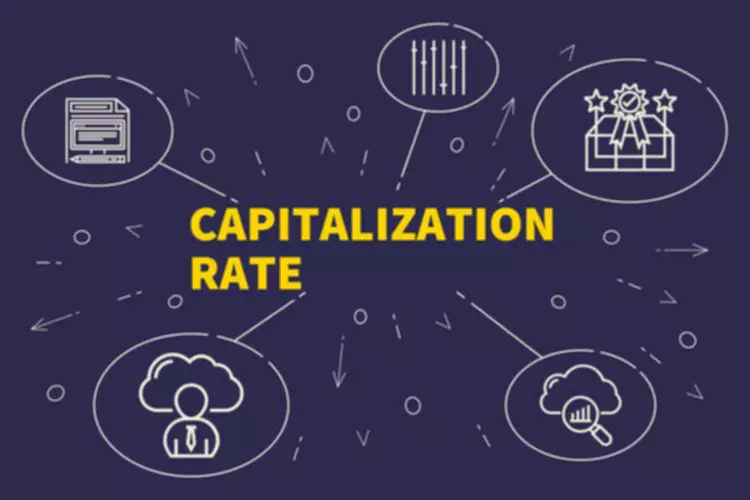Content

Forensic accounting is utilized in litigation when quantification of damages is needed. Parties involved in legal disputes use the findings of a forensic accountant to resolve disputes via settlements or court decisions, such as compensation or benefit disputes. The forensic accountant may be utilized as an expert witness if the dispute escalates to a court decision. Forensic accounting is a type of accounting that investigates financial information for potential evidence of crimes.
What are the 3 functions of forensic accountant?
Forensic accounting is a combination of accounting and investigative techniques used to discover financial crimes. Forensic accountants explain the nature of a financial crime to the courts. Forensic accountants trace funds, identify assets and conduct asset recovery, and perform due diligence reviews.
Fraud is a major expense to the company, and it is a virus that is hardly investigated and eliminated. The fraud investigation could be performed in many corporate, public, or private organizations. So that is the reason why a most forensic accountant is hired by a lawyer or court to investigate the subject matter and produce the report.
S Corp Tax Calculator
They can witness areas like profit and loss, Fraud, patent and copyright, breach of contract, and many others. However, the evidence found by forensic accounting could be used by the court as expert evidence. For example, the FBI also has a forensic accounting team to work for them in investigating any accounting-related matter. The investigation and verification are normally done on the company’s financial statements, management accounts, and other related documents, data, and information related to the investigated subject matter. Forensic accountants gather information to form an opinion, which is generally expressed in a report or given as expert evidence in court. Forensic accountants are multi-disciplinary and have a wide range of experience in the forensic and investigative field.
Adam received his master’s in economics from The New School for Social Research and his Ph.D. from the University of Wisconsin-Madison in sociology. He currently researches and teaches economic sociology and the social studies of finance at the Hebrew University in Jerusalem. Forensic accountants sometimes are employed by big corporations to conduct internal audits that help in fraud prevention at the earliest. The article will cover some of the advantages and limitations of forensic accounting and provide a brief overview of the history of forensic accounting. Forensic accountants may be involved in recovering proceeds of crime and in relation to confiscation proceedings concerning actual or assumed proceeds of crime or money laundering.
Want to Be a Forensic Accountant? What You Need to Know
In general, Forensic Accountants are required to have knowledge and experience in accounting and investigation skills. Also, knowledge in those related industries is important to perform its work efficiently and effectively. The common procedures include financial statement analysis, computer assistance, supporting document examination, investigation, and interview. We are the American Institute of CPAs, the https://www.bookstime.com/articles/forensic-accounting world’s largest member association representing the accounting profession. Today, you’ll find our 431,000+ members in 130 countries and territories, representing many areas of practice, including business and industry, public practice, government, education and consulting. Typically, an accounting firm will be engaged by a client either looking to defend themselves, or one looking to prosecute someone.
In addition to their formal education and analytical skills, forensic accountants may also need to obtain professional certifications. These certifications can provide additional training and education in the specialized area of forensic accounting, and can also help forensic accountants stand out in a competitive job market. Some common certifications for forensic accountants include Certified Fraud Examiner (CFE), Certified Forensic Accountant (CFA), and Certified Public Accountant (CPA). Forensic accountants play a vital role in uncovering fraudulent activities that have been perpetrated on businesses, banks, and other organizations. Forensic accounting involves a range of techniques and skills, including auditing, financial analysis, investigation, and legal knowledge. It can be used in a wide variety of legal and business contexts, such as divorce, bankruptcy, fraud, theft, and breach-of-contract cases.
Terms Similar to Forensic Accounting
Investigation is the act of determining whether criminal matters such as employee theft, securities fraud (including falsification of financial statements), identity theft, or insurance fraud have occurred. A forensic accountant may be hired to search for hidden assets in a divorce case. Forensic accounting is the investigation of fraud or financial manipulation by performing extremely detailed research and analysis of financial information.
- This involves presenting complex financial data in a clear and understandable manner that can assist a judge or jury in understanding the facts of a case.
- IT IS the application of a wide range of accounting, auditing, and investigative skills to measure and verify economic damages and resolve financial disputes.
- Forensic accountants use a range of techniques and skills to investigate financial records and transactions in order to uncover fraud or other illegal activities.
- In addition to their formal education and analytical skills, forensic accountants may also need to obtain professional certifications.
- Their ability to uncover financial wrongdoing can lead to successful litigation outcomes for businesses.
- The Certified Forensic Accountant (CFA) certification is awarded by the Forensic CPA Society and is designed for professionals who specialize in forensic accounting services.
- Their expertise can assist in the resolution of legal disputes and provide critical information for the detection and prevention of financial crimes.
Because forensic accountants are independent experts, they are preparing the expert report, but they also could be the witness used by the court. As we know, the auditor tests the accounting records against accounting standards like US GAAP or IFRS. Their responsibility is not to investigate and quantify the Fraud that happens in the company, and also, the evidence found by the auditor might not be used by the court. This engagement involves professional firms with professional experiences, expertise in accounting standards, and legal background.
Pros and Cons of Working in Forensic Accounting
Forensic accounting is becoming increasingly important in today’s business world due to the growing complexity of financial transactions and the rise in fraud and white-collar crime. Forensic accountants can help companies identify and prevent fraud, as well as assist in the detection and investigation of financial crimes. More simply, in the context of litigation, the term forensic means to be suitable for use in a court of law. These resources are intended to assist practitioners https://www.bookstime.com/ in competently performing these duties while staying current on issues that impact their day to day practice. ‘Forensic’ means being able to meet the exacting standards of a court of law (thus forensic science, forensic psychiatry, forensic climatology etc.). Some forensic accountants’ primary skills include an understanding of the legal process; how to conduct investigations; conducting financial analyses and other accounting procedures at a level acceptable to the legal system.
Knowing the above, you may realize a forensic accountant could be able to help you. “Forensic”, according to the Webster’s Dictionary means, “Belonging to, used in or suitable to courts of judicature or to public discussion and debate.” Akounto contributes to corporate citizenship by helping maintain accurate books of accounts. Expert support helps in responsible decision-making and safeguarding the stakeholders’ interests. Forensic accounting ensures that the principles of corporate citizenship are upheld. For the last 10-plus years, I have also enjoyed my work in the private sector protecting the assets of clients for Protiviti.
Accrual Accounting: Method Definition & Examples
These people have special skills in accounting and investigation and independence from all parties so that the report will be more reliable and have no objection from all the parties. The Forensic Accountant must have the confidence and ability to respond immediately to questions raised in court. Further, and potentially even more important than knowing the answers, the Forensic Accountant must be able to communicate often extremely technical and complex financial information in a manner that will understood by the court. A forensic accountant also needs the ability to maintain his composure when detailing these events on the witness stand and should be insensitive to personal attacks on his professional credibility. The process of digging through all of a company’s or individual’s financial information can take months or even years and requires a team of specialized accountants that act like detectives trying to solve a mystery.

Forensic accountants can also assist government agencies with fraud detection, asset forfeiture proceedings, and tax evasion investigations. They are well-versed in financial regulations and can provide data analysis to support government cases and legal proceedings. In conclusion, forensic accountants offer services that are invaluable in various settings. Their accounting and investigative skills are essential in legal proceedings, internal investigations, and insurance claims.
Forensic accounting is a specialized area of accounting that focuses on investigating financial crimes, disputes, and other irregularities. You might have heard the phrase “forensic evidence” before, which simply means evidence that is able to be presented in a court of law. Hence, forensic accounting is a term to describe an analysis of financial information that can be used to support a case in a court of law. Many, but not all, forensic accountants are also certified public accountants (CPAs).
IT IS the application of a wide range of accounting, auditing, and investigative skills to measure and verify economic damages and resolve financial disputes. No matter where you look for a forensic accountant, it’s important to choose someone with proven experience and expertise in financial investigations. Look for professionals who have worked on cases similar to yours, and who have the necessary certifications and credentials to back up their work. Where internal audit aims to find and prevent errors and give a reasonable assurance of compliance, forensic accounting seeks to identify, establish and prove financial frauds, misconducts, appropriations, embezzlement, etc. Forensic Accounting is the art of investigating accounting records, financial statements, and other related financial records.
